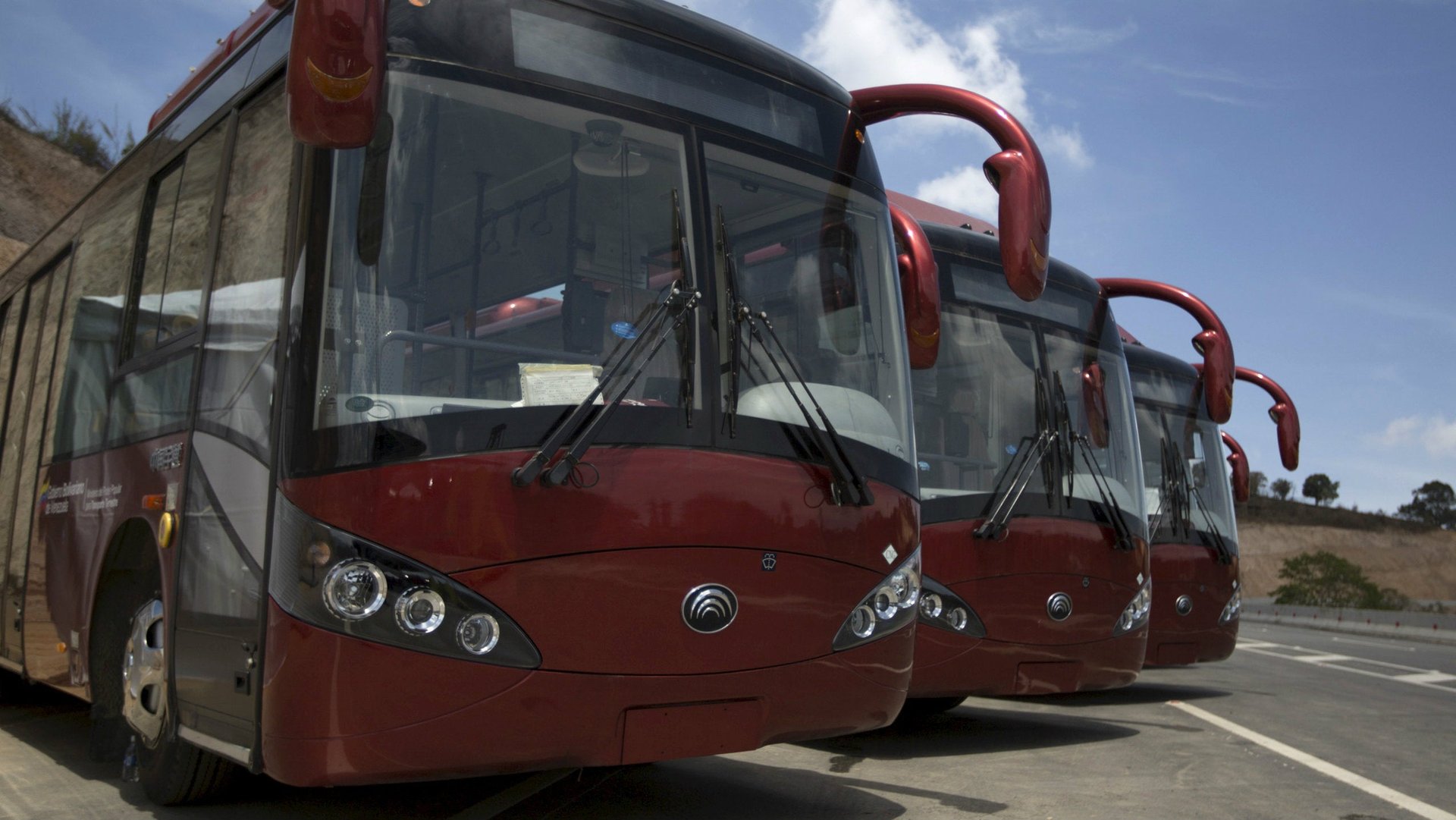Video: Hop aboard China’s first self-driving bus
Bus drivers in China might soon find themselves out of a job, or at least with a lot less to do. Yutong, a bus manufacturer based in the Chinese city of Zhengzhou, recently ferried passengers on a completely autonomous bus across a stretch of 32 kilometers (20 miles).


Bus drivers in China might soon find themselves out of a job, or at least with a lot less to do. Yutong, a bus manufacturer based in the Chinese city of Zhengzhou, recently ferried passengers on a completely autonomous bus across a stretch of 32 kilometers (20 miles).
According to the company, the bus went through 26 traffic lights, changed lanes, and passed nearby vehicles, all without the assistance of a human. A video released yesterday by Russia Today shows Yutong’s vehicle in action.
The bus remains an internal experiment for Yutong and its research partners, which include engineers from the Chinese Academy of Engineering, a state-affiliated research institution. It has yet to hit the mass market.
One of China’s biggest bus makers, the company claims it sold over 60,000 buses across 120-plus countries last year.
Yutong isn’t the first company to test out a self-driving bus. CityMobile2, a Belgium-based organization that researches vehicle autonomy across Europe, tested out an electric, self-driving bus in partnership with a French bus maker and robotics firm. But compared to that project’s demonstration, Yutong’s bus looks far more sophisticated.
Buses are arguably a more effective means of spurring mass adoption of automated vehicles than cars. They’re cheaper to operate and can hold more passengers. But whereas Google, Tesla, and car manufacturers have all invested in autonomous vehicles, most bus makers haven’t, which could delay the arrival of vehicles like the one Yutong has tested.